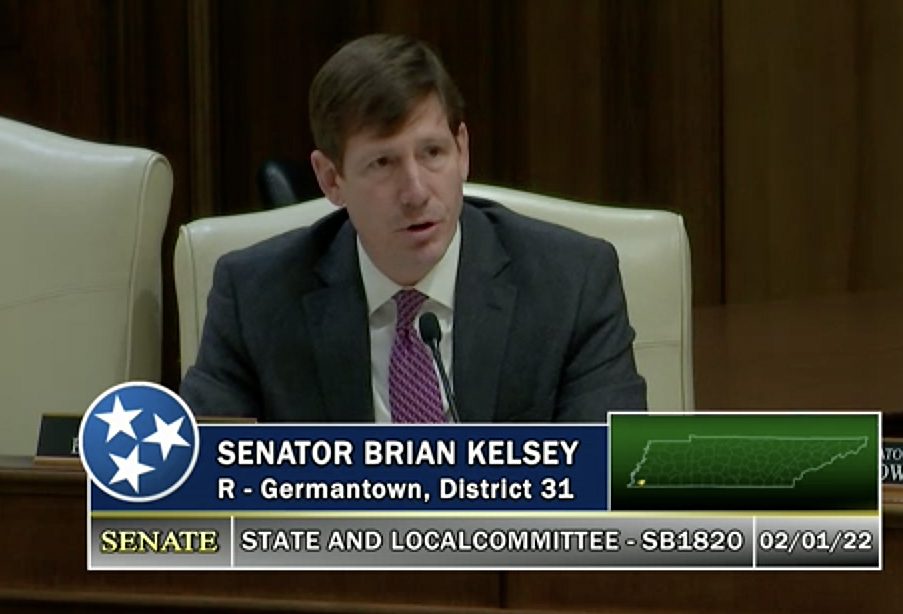Say this for Brian Kelsey: The State Senator from Germantown is not letting the burden of a felony indictment (for campaign finance violations) inhibit his legislative activity. In that regard the Germantown Republican is like State Senator Katrina Robinson (D-Memphis) who also continued working legislatively in the face of a felony indictment (since resulting in conviction that has put Robinson on the brink of expulsion from the Senate).
Kelsey’s latest project is Senate Bill 1820 (companion measure: 1868 HB, by Rep. Nathan Vaughn, a Collierville Republican), which would prohibit the use anywhere in Tennessee of ranked choice voting (a.k.a. instant runoff voting), a mode of elections that has been twice approved by Memphis voters in referenda but has been prevented by the City Council and by the state Election Coordinator from taking place.
Introducing his bill in the Senate’s State and Local Government committee on Tuesday, Kelsey noted that his legislation had both Republican and Democratic co-sponsors and said, “It’s not a partisan issue. It’s really an issue about voter clarity.”
He went on to give an explanation of the ranked choice process that he himself might not regard as a model of clarity: “Instead of voting for a name, you would rank candidates, for example, one through seven. And then if for all those people who voted for the seventh place receiving vote person, those, then your first choice would be thrown out, and then you come back and they go to see okay, well, now how who did you vote for it for your second choice, and then you got to reallocate those votes that way, and then you got to go back and recount them. So you can see, this can take many rounds, and can be very confusing.”
A shorter but more informative explanation might characterize the process as one designed to prevent minority vote-getters from triumphing in winner-take-all elections. All candidates would be ranked by voters, and — absent an immediate majority winner — runner-up votes would be successively applied in subsequent rounds until a majority winner emerged.
Said Kelsey: “I do think that it’s a very confusing and complex way of doing elections, and one that does not create voter confidence in the counting system and the outcomes, and one that would not be helpful for Tennessee.”
State Senator Jeff Yarbro (D-Nashville) intervened to point out that the process had been approved in Shelby County twice. He went on to suggest that it would be helpful if someone involved in the Memphis effort would address the committee and shed some light on the issue. Kelsey suggested that Beth Henry Robertson of the State Election Coordinator’s office, which, via Coordinator Mark Goins, has previously expressed doubts about ranked choice could offer some clarification.
State Senator Sara Kyle (D-Memphis) confirmed for the committee that, “In Memphis, we have had referendums, one I think past 63 percent. One 70 percent … I am just asking if the sponsor would consider moving this to a study committee this summer so that we can have people to come in and testify.”
Kelsey objected: “I first heard about a request to testify yesterday and I said, bring them on, you know, that’s great, please, it’s three hour drive. From Memphis. No one chose to make that drive this morning.”
There was discussion back and forth, with Sen. Kenneth Yager (R-Kingston) expressing agreement with the need to hear witnesses and committee chair Richard Briggs (R-Knoxville) agreeing and ultimately making a motion to roll the bill for a week and perhaps further if need be to allow witnesses to testify.
Asked his view ot today’s discussion, University of Memphis law professor Steve Mulroy, who has been the major advocate of ranked choice voting locally, pointed out that the Tennessee legislature is majority Republican and that it was both likely and desirable that Republican advocates for the process would make themselves available for testimony for it in Nashville.
